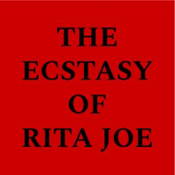
Overview
Synopsis
The Ecstasy of Rita Joe follows Rita Joe, a young Indigenous woman who leaves her reservation and comes to the city of Vancouver, in hopes of finding freedom from the limitations of reserve life. However, once in the city, she experiences racism, marginalization, and, finally, rape and murder. The Ecstasy of Rita Joe is a seminal work in modern Canadian drama and is a commentary on the systematic prejudice and discrimination faced by the Indigenous peoples of Canada. Told in an expressionistic, stream-of-consciousness style with disconnected scenes, songs, and monologues, Rita Joe reflects on her youth and the hardships she has faced during her various arraignments in the judicial system. George Ryga’s political play presents a reflection on the consequences of the colonization of the Indigenous peoples of Canada.
Show Information
Context
The Ecstasy of Rita Joe premiered on November 23, 1967, at the Vancouver Playhouse and was directed by George Bloomfield. The title of the play comes from the euphoric state of enlightenment some experience before death. This was the first high-profile play produced in Canada that dealt with the subject matter of violence against Indigenous peoples and is considered to be a seminal work in modern Canadian drama. Subsequent productions have occurred at the opening of the studio theatre at the
to read the context for The Ecstasy of Rita Joe and to unlock other amazing theatre resources!Plot
ACT ONE
Rita Joe, a young Indigenous woman, is brought before the Clerk and The Magistrate by the Policeman. As The Magistrate pontificates about the laws of the country, Rita Joe reflects on the fact that she was not given the same freedoms and rights as her fellow citizens. Rita Joe has been arrested for solicitation as she was trying to get a ride out of the city to go back to her reservation. The Magistrate insinuates that Rita Joe’s unemployment shows that she does not contribute to
to read the plot for The Ecstasy of Rita Joe and to unlock other amazing theatre resources!Characters
| Name | Part Size | Gender | Vocal Part |
|---|---|---|---|
|
Lead |
Female |
Non-singer |
|
|
Lead |
Male |
Non-singer |
|
|
Lead |
Male |
Non-singer |
|
|
Supporting |
Male |
Non-singer |
|
|
Supporting |
Male |
Non-singer |
|
|
Supporting |
Female |
Non-singer |
|
|
Featured |
Male |
Non-singer |
|
|
Featured |
Female |
Non-singer |
|
|
Featured |
Female |
Non-singer |
|
|
Featured |
Male |
Non-singer |
|
|
Featured |
Female |
Soprano, Mezzo-Soprano, Alto |
|
|
Featured |
Male |
Non-singer |
|
|
Featured |
Male |
Non-singer |
|
|
Featured |
Male |
Non-singer |
|
|
Ensemble |
Male |
Non-singer |
Songs
A song with an asterisk (*) before the title indicates a dance number; a character listed in a song with an asterisk (*) by the character's name indicates that the character exclusively serves as a dancer in this song, which is sung by other characters.
Monologues
Scenes
Key Terms
Aboriginal refers to the Indigenous peoples of Australia, encompassing diverse nations, languages, and traditions. Aboriginal theatre often highlights oral storytelling, dance, and music as vital cultural expressions. Modern Aboriginal drama explores identity, history, and the impact of colonization.
A theatrical style that distorts reality to convey inner emotional experience, popular in early 20th-century drama.
Indigenous peoples of Canada, whose oral storytelling and ceremonial practices contribute richly to contemporary theatre.
Refers to the original peoples of a region; their performance traditions often include ritual, storytelling, and dance.
A theoretical framework examining the effects of colonialism on culture and identity, often explored in World Theatre.
Videos
Quizzes
Themes, Symbols & Motifs
Sorry! We do not currently have learning modules for this guide.
Quote Analysis
Sorry! We do not currently have learning modules for this guide.
